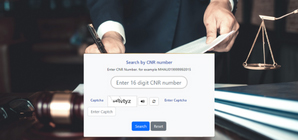Legal Rights in regards to Cheque Bounce
Posted On : October 12, 2019
Table of Contents
Dishonor of Cheque/ Cheque Bounce
A cheque bounces or is dishonored when upon presenting a cheque in the bank it is returned to the payer unpaid. There are two reasons behind a Cheque Bounce and they are either insufficient funds in the bank account of the payer issuing the cheque or if there is a mismatch of signatures of the payer in the sense that the payer’s original signature and the signature on the cheque aren’t the same. One does have the option of taking legal action against the payer issuing a bogus cheque. Section 138 of The Negotiable Instruments Act is the most vital and effective legal provision to consider.
Few things to be mindful of
First and foremost the action that the payee ought to take is sending a legal notice or a demand letter to the drawer or payer of the cheque. One ought to also consult a check bounce attorney fir drafting the legal notice which ought to be sent within the stipulated period of a month from the date of receipt of notification of cheque bounce from the payer’s bank. Nonetheless, if in case the drawer is unable to or cannot pay the amount within the timescale of fifteen days from the date of despatch of legal notice then the person wronged may file a cheque bounce lawsuit implicating the drawer.
Where can a cheque bounce case be filed?
Arguably as a cheque bounces the jurisdiction of the case is unclear. However, the recent rulings of the Supreme Court have thrown light into the issue and made it more transparent. A cheque bounce case ought to be filed in the jurisdiction where the cheque was presented by the payee for the cheque to be honored.
Who can file a cheque bounce case?
Usually, the payee files the cheque bounce case. Nonetheless, in one-of cases, a power of attorney would suffice for filing of the case. It's crucial to be mindful of the fact that it's mandatory that the complainant appear before the court and is heard under oath.
What is a significant alteration?
Altering the cheque amount, or the payee’s name or any other alterations on the cheque, like the date or the drawee’s name or payer bank can be regarded as a substantial alteration. Dishonor of a cheque due to significant alteration and the bank finding out about it does not require a cheque bounce case to be filed.
How to defend against a bogus cheque bounce lawsuit?
In business transactions, in particular, a cheque is typically the mode of payment. Nonetheless, there have been cases wherein once the business transaction is completed, the cheque has been encashed fraudulently resulting in filing a false lawsuit. Therefore, the way to defending a bogus cheque bounce lawsuit is proving that there wasn’t any amount owed to anyone at the time of issuance of the cheque. Therefore, what the payer would have to prove legally is that the cheque was issued as a security deposit and there wasn’t any existing debt at the time.
Alternative recourses
Usually, a civil suit is filed to recover money in a cheque bounce lawsuit. However, in cases of a huge cheque amount is huge and in applicable jurisdictions, a criminal lawsuit of cheating can be filed by the complainant or the payee against the payer u/s 420 of the IPC.
Cheque bounce lawsuit against companies and firms
If one wants to file a cheque bounce lawsuit against one’s company or firm, the directors and/or the partners as the case may be are liable to be sued. One could file a cheque bounce lawsuit against the company or.firm as well.
What if there is an unresolved cheque bounce lawsuit?
Offenses of cheque bounce are all too common these days that the financial world is affected by. The upshot of a cheque bounce both for the payer and the payee has a ripple effect which includes bank penalty, negative effect on CIBIL score not to mention criminal or civil action against the payer, and so on. Besides, if the payee refrains from taking any action against the payer within the suggested timescale then the payee’s chance of resolving the issue would lapse as cheque bounce lawsuits are time-bound. Therefore, resolving a cheque bounce case promptly to stay clear of the upshots that will ensue.
Consult Lawyer for Cheque Bounce Matter
























